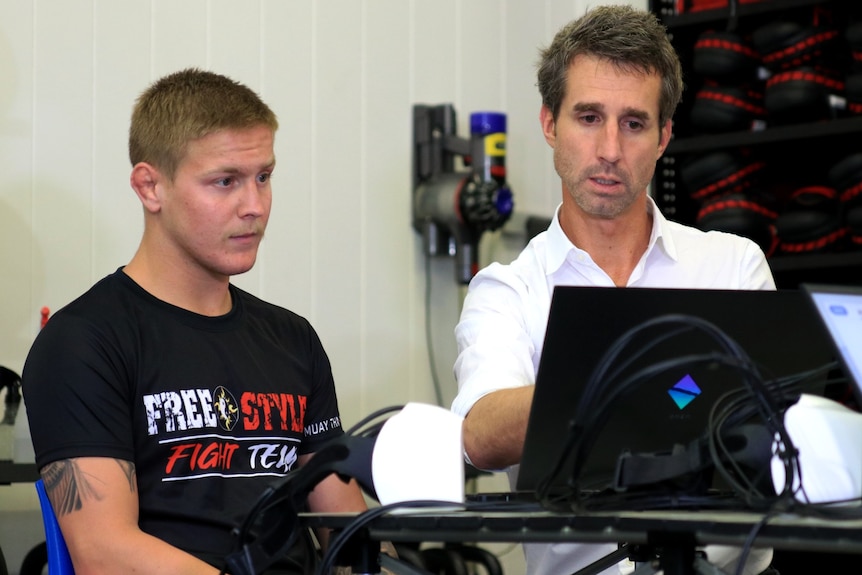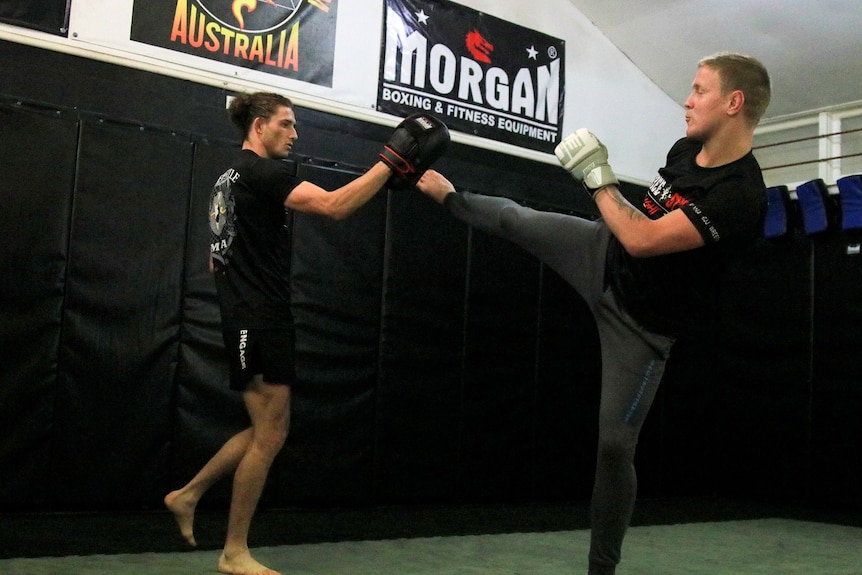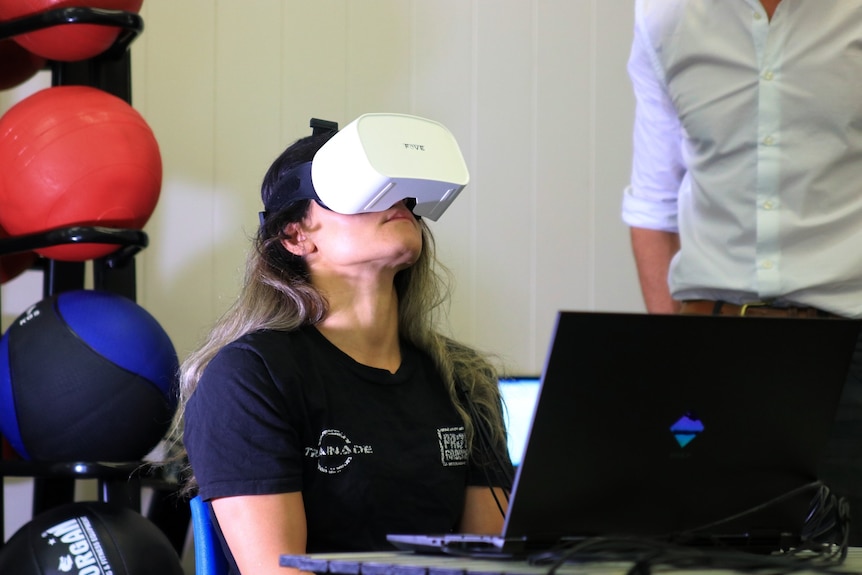Australian MMA fighters first to test virtual reality concussion technology
Amena Hadaya was encouraged by her brothers to take up Mixed Martial Arts (MMA), but what started as a bit of exercise has turned into an all-consuming passion.
Key points:
- MMA fighters in Wollongong are the first to use a new technology using virtual reality to manage concussions
- Company NeuroFlex uses a virtual reality headset to test brain activity before and after an injury
- The technology is designed to stop fighters from returning to the ring before their brains have fully healed
But on the cusp of making her professional debut, the 24-year-old lives with a constant reminder of the high risk of brain injury in her chosen sport.
"Obviously this is going to affect us later on when we are older," she said.
"I get told this all the time by my mum, she's a nurse.
"You just have to take the correct precautions to avoid it later on affecting you and developing chronic illnesses."
The Wollongong resident has volunteered to be one the first MMA fighters to test an emerging technology that aims to revolutionise the management of brain injuries.
Australian Canadian company NeuroFlex uses virtual reality (VR) technology to take accurate readings of eye movements and establish a baseline of participants' brain health.
Athletes are then tested against this baseline following a head injury to establish when the brain has healed and whether it is safe to return to competitive sport.
"Obviously I want to remember my name when I am older," Ms Hadaya said.
"I want to be able to remember my family, the things I've done. I don't want to forget those kinds of things because it is obviously a possibility."

Three concussions in less than a year
At 23 years old, Colby Thicknesse has already begun his professional MMA career, winning his first two fights.
Despite this unbeaten record, he has suffered three concussions this year alone.
"It can affect your mood, you get more irritable, it can increase injury risk for knees, hips and everything like that," he said.
He welcomed any technological developments that can help him protect his brain.
"I have suffered a few, so I need to make sure I'm ticking all the boxes and doing everything correctly, so I don't come back too soon and suffer longer-term consequences," he said.
"You can have knee injuries, hip injuries, arms, anything you can hurt you can normally come back from it, but if you have a bad brain injury there's not a lot you can do about that."

Concussion protocols
The management of concussion and other brain injuries is currently under the microscope in several popular sporting codes.
Rugby Australia, the South Australian AFL, and the FIFA World Cup are among sporting organisations adopting baseline testing in a bid to improve their concussion protocols.
Jeff Rogers, a clinical neuropsychologist involved in the technology rollout, said it was a logical next step to use VR to help MMA fighters.

"This is our first foray into working with people from a combat sport background," he said.
"In a sport where the objective is to make contact with the head, this is a really sensible, logical and appropriate place to be working."

A recent study analysed more than 800 MMA fights in the United States.
It found 65 per cent of injuries sustained by fighters were head injuries, and almost half of those injuries were concussions.
The largest professional MMA organisation, UFC, released its first official concussion protocols last year.
"UFC adopting those policies last year was a real step forward in recognising there is a high rate of head injury … in their sport, and that it would be responsible and appropriate that we do something to detect and manage those [injuries]," Dr Rogers said.
Plenty to learn about concussion
MMA has enjoyed a meteoric rise in popularity in the past decade, and researchers admit there are still significant gaps in knowledge about how the sport impacts on brain health.
Dr Rogers said the data from these tests would help contribute to a body of evidence to better inform and protect athletes.
"We are just beginning to understand the effects of a single concussion, let alone the cumulative effects of four to six of these over a lifetime," he said.
"Fighting is not necessarily safe, but we want to make sure that these fighters are safe to get back in the ring.
"[We] are really excited to be part of the process of starting to accumulate really good solid evidence ... to start to guide some of these professional bodies and professional codes."








Gloss